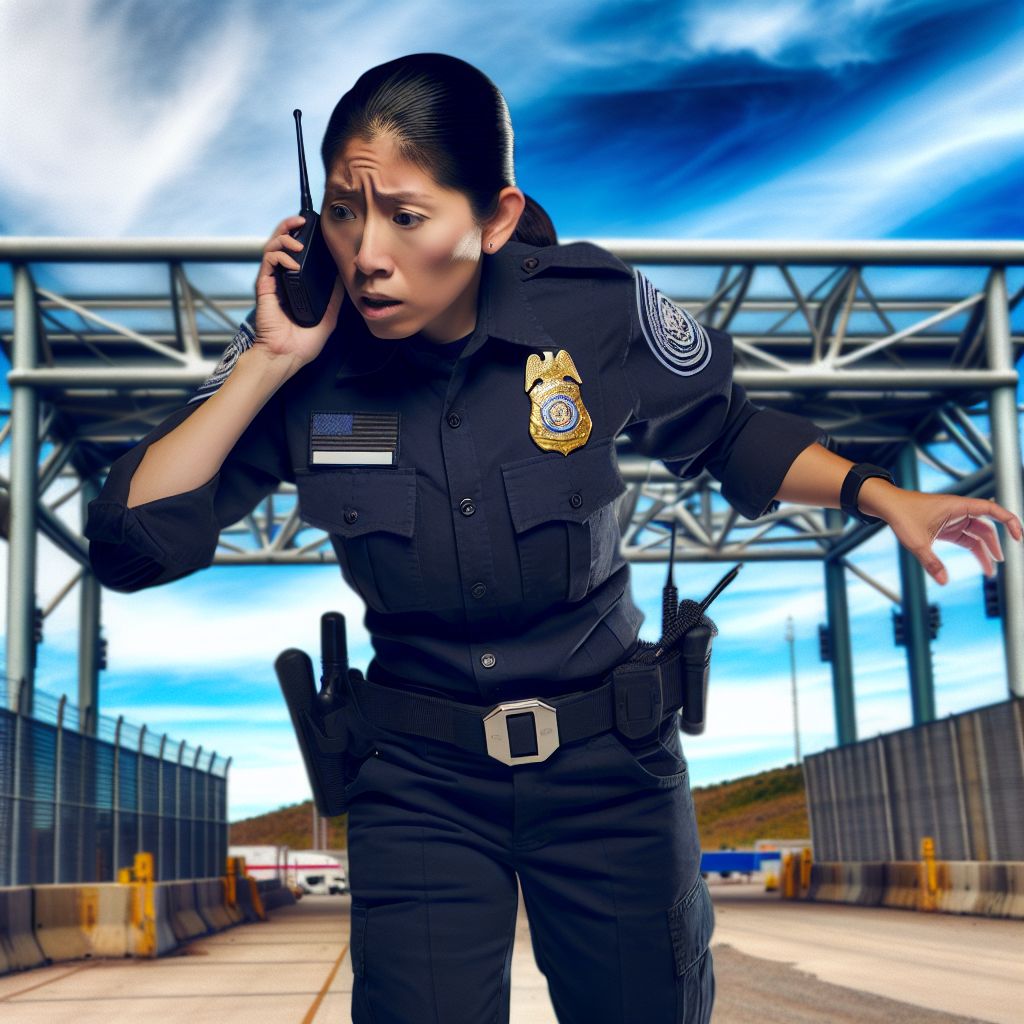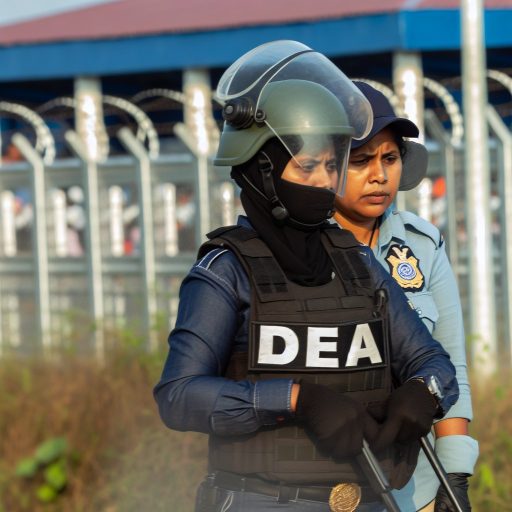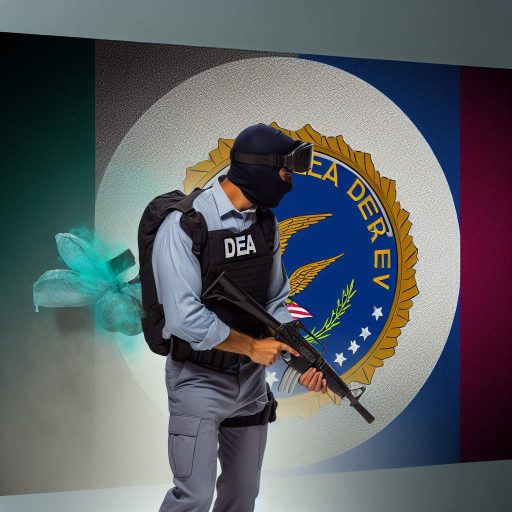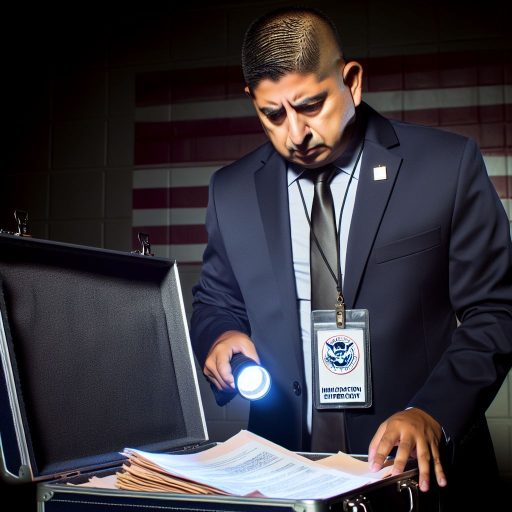Introduction:
Customs and Border Protection (CBP) officers play a crucial role in managing emergency situations at various entry points.
Their training and quick response can make a significant difference in ensuring the safety and security of the people they serve.
Roles of CBP Officers in Emergency Situations:
CBP officers are trained to assess and respond to a variety of emergencies, including medical crises, security threats, and natural disasters.
They are often the first responders in critical situations, providing immediate assistance and coordinating with other agencies to ensure a swift and effective resolution.
Importance of Proper Training:
Proper training is essential for CBP officers to effectively handle emergency situations.
Training equips them with the necessary skills, knowledge, and confidence to make quick and informed decisions under pressure.
It also ensures that they are prepared to adapt to rapidly changing circumstances and communicate effectively with other responders.
Response to Medical Emergencies:
In the event of a medical emergency, CBP officers are trained to administer first aid, perform CPR, and assist individuals in distress until professional medical help arrives.
Their prompt intervention can be critical in saving lives and minimizing the impact of a health crisis.
Handling Security Threats:
When faced with a security threat, such as a suspicious package or an unruly individual, CBP officers follow established protocols to assess the situation, secure the area, and coordinate with law enforcement to neutralize the threat.
Their vigilance and quick response are essential in preventing potential harm to themselves and others.
Coordinating During Natural Disasters:
During natural disasters like hurricanes or wildfires, CBP officers work alongside other agencies to assist in evacuations, provide support to affected communities, and ensure the continuity of essential services.
Their ability to work collaboratively and respond swiftly to evolving situations is vital in mitigating the impact of disasters and protecting public safety.
Handling Emergency Situations
When it comes to handling emergency situations, CBP officers undergo rigorous training and preparation to ensure they can effectively respond to any crisis that may arise.
Training and Preparation
- Rigorous training programs are in place for CBP officers to equip them with the necessary skills and knowledge to handle emergency situations with professionalism and efficiency.
- Simulation exercises are conducted regularly to expose officers to different emergency scenarios, allowing them to practice their response strategies and decision-making under pressure.
- Equipment and resources are made available to CBP officers to ensure they have the tools needed to respond effectively in a variety of emergency situations, ranging from medical emergencies to security threats.
CBP officers are trained to remain calm and composed in high-stress situations, allowing them to assess the situation accurately and make quick decisions to protect themselves and others.
During training exercises, officers are taught how to communicate effectively with their team members and other agencies involved in the response to ensure a coordinated effort in managing the emergency.
CBP officers are also trained to prioritize the safety and well-being of individuals involved in the emergency, whether they are travelers at a port of entry or fellow officers working alongside them.
Having access to the right equipment and resources is crucial for CBP officers to effectively respond to emergencies, such as first aid kits, protective gear, communication devices, and surveillance tools.
CBP officers are trained to adapt to evolving situations and adjust their response strategies accordingly, assessing risks and making decisions based on the information available to them in real-time.
Regular training and preparedness drills help CBP officers stay sharp and ready to respond to emergencies at a moment’s notice, maintaining a high level of readiness and response capability.
Transform Your Career Today
Unlock a personalized career strategy that drives real results. Get tailored advice and a roadmap designed just for you.
Start NowBy investing in the training and preparation of CBP officers, Customs and Border Protection ensures that its personnel are equipped to handle emergency situations with professionalism, skill, and the utmost dedication to their duty.
Common Types of Emergency Situations Faced by CBP Officers:
- Medical emergencies
- Threats to national security
- Natural disasters
- Violent incidents
Handling Medical Emergencies:
CBP Officers receive training in first aid and CPR to respond quickly and effectively.
They assess the situation, provide necessary assistance, and coordinate with medical professionals.
Officers must remain calm under pressure and prioritize the well-being of individuals in need.
Addressing Threats to National Security:
CBP Officers are trained to identify potential threats and take immediate action.
They work closely with other law enforcement agencies to mitigate risks and ensure safety.
Officers follow protocol, gather intelligence, and respond swiftly to protect the country.
Managing Natural Disasters:
CBP Officers have protocols in place to respond to natural disasters such as hurricanes or earthquakes.
They work to secure borders, assist affected communities, and provide humanitarian aid.
Quick decision-making and coordination are crucial in handling emergency situations.
Handling Violent Incidents:
CBP Officers undergo specialized training to handle violent incidents with caution and efficiency.
They use de-escalation tactics, communication skills, and proper equipment to ensure safety.
Officers must work together to contain the situation and protect themselves and others.
Explore Further: Public Safety Officer Training: What to Expect
Communication and Coordination:
Effective communication is crucial during emergencies for quick response.
CBP officers communicate with other agencies like local police for support.
Using technology like radios, phones, and computers for sharing crucial information.
- Fieldwork
- Research
- Teaching
Gain More Insights: Travel Tips from TSA Officers for Smooth Airport Security
Decision Making and Risk Assessment:
CBP officers are trained to make split-second decisions in high-pressure situations.
When faced with an emergency, they must quickly analyze the situation.
Transform Your Career Today
Unlock a personalized career strategy that drives real results. Get tailored advice and a roadmap designed just for you.
Start NowOfficers determine the best course of action.
This could involve deciding whether to apprehend a suspect, use force, or call for backup.
One of the key aspects of decision making for CBP officers is assessing risks.
They must evaluate risks to their own safety and the safety of the public.
This involves considering factors such as the presence of weapons.
It also includes the behavior of individuals involved.
Additionally, they assess the overall threat level of the situation.
By evaluating these risks, officers can determine the most appropriate response.
Balancing the need for swift action with caution is another important consideration.
While it is essential to respond quickly, it is equally important to approach with care.
Attention to detail is crucial in high-pressure situations.
Rushing into a dangerous situation without proper assessment can lead to unintended consequences.
This includes escalating violence or endangering innocent bystanders.
Uncover the Details: Wildland Firefighter Incident Command System

De-escalation Techniques:
- Training in de-escalation tactics to defuse tense situations
- Recognizing signs of escalation and how to respond
- Resolving conflicts peacefully to prevent escalation
CBP officers are trained in various de-escalation techniques to effectively handle emergency situations.
These techniques are crucial in diffusing tense situations and avoiding further escalation.
Training in De-escalation Tactics:
CBP officers undergo extensive training in de-escalation tactics to equip them with the skills needed to handle high-pressure situations.
This training focuses on communication, active listening, and conflict resolution strategies.
Recognizing Signs of Escalation:
CBP officers are trained to recognize early signs of escalation, such as aggressive behavior, agitation, or refusal to cooperate.
By identifying these signs early on, officers can intervene before the situation escalates further.
Transform Your Career Today
Unlock a personalized career strategy that drives real results. Get tailored advice and a roadmap designed just for you.
Start NowHow to Respond:
When faced with escalating situations, CBP officers are taught to remain calm and composed.
They are trained to use verbal techniques to calm the individual down and find a peaceful resolution to the conflict.
Resolving Conflicts Peacefully:
The ultimate goal of de-escalation techniques is to resolve conflicts peacefully and prevent the situation from spiraling out of control.
CBP officers aim to defuse tensions and reach a peaceful resolution without the need for force.
The application of de-escalation techniques is a crucial aspect of how CBP officers handle emergency situations.
By training in these tactics, officers can effectively manage high-stress situations and ensure the safety of both individuals involved and themselves.
Learn More: How to Become a U.S. Marshal: Step-by-Step Guide
Support and Resources for CBP Officers:
- Mental health support services for officers after traumatic events
- Peer support programs for debriefing and emotional support
- Access to counseling and resources for coping with stress
Mental Health Support Services:
CBP officers often face highly stressful situations that can have a lasting impact on their mental health.
To address this, the agency provides mental health support services to help officers cope with trauma and stress.
These services may include access to licensed therapists, counselors, and mental health professionals who are trained to work with law enforcement officers.
Officers can receive confidential counseling to process their emotions and develop coping strategies to deal with the demands of their job.
In addition to individual counseling, CBP also offers group therapy sessions where officers can share their experiences and provide support to one another.
These group sessions can be especially beneficial after traumatic events, as officers can debrief and process their emotions in a safe and understanding environment.
Peer Support Programs:
Peer support programs are another essential resource for CBP officers facing emergency situations.
These programs involve trained peer supporters who are fellow officers within the agency and who are equipped to provide emotional support and guidance.
Peer supporters undergo specialized training to help them effectively assist their colleagues in times of need.
They can provide a listening ear, share coping strategies, and offer a unique perspective based on their own experiences as CBP officers.
By participating in peer support programs, officers can receive immediate emotional support from someone who understands the challenges they face on a daily basis.
This can help officers feel less isolated and more connected to their colleagues, fostering a sense of camaraderie within the agency.
Access to Counseling and Resources:
CBP officers have access to a wide range of counseling services and resources to help them cope with stress and maintain their mental well-being.
Transform Your Career Today
Unlock a personalized career strategy that drives real results. Get tailored advice and a roadmap designed just for you.
Start NowThese resources can include crisis intervention hotlines, support groups, and workshops on stress management.
Additionally, CBP may provide access to resources such as self-care strategies, mindfulness techniques, and relaxation exercises to help officers alleviate stress and improve their mental health.
These resources can be crucial in helping officers build resilience and effectively navigate the demands of their high-pressure job.
By offering comprehensive support and resources, CBP aims to prioritize the mental health and well-being of its officers, ensuring they have the tools and assistance they need to cope with emergency situations and thrive in their roles.
Role of CBP Officers in Emergencies
When faced with emergency situations, CBP officers play a crucial role in ensuring the safety of communities.
CBP officers are trained to remain calm and act quickly to address any emergency that may arise.
They use their expertise to assess the situation and make decisions that prioritize the well-being of individuals.
CBP officers work closely with other law enforcement agencies and emergency responders to coordinate responses effectively.
They are equipped with the necessary tools and resources to handle various emergency scenarios with efficiency and professionalism.
CBP officers undergo regular training to stay updated on the latest protocols and procedures for emergency management.
In high-stress situations, CBP officers demonstrate resilience and resourcefulness to overcome challenges and protect the public.
Their ability to think on their feet and adapt to rapidly changing circumstances is paramount in emergency situations.
CBP officers are dedicated to safeguarding our communities and ensuring the security of our borders at all times.
Importance of CBP Officers
CBP officers play a vital role in handling emergency situations with skill, dedication, and professionalism.
They face numerous challenges in the line of duty and require a diverse set of skills to effectively respond to emergencies.
It is important to acknowledge and appreciate the work of CBP officers in safeguarding our communities and supporting them in their mission to protect our borders.




